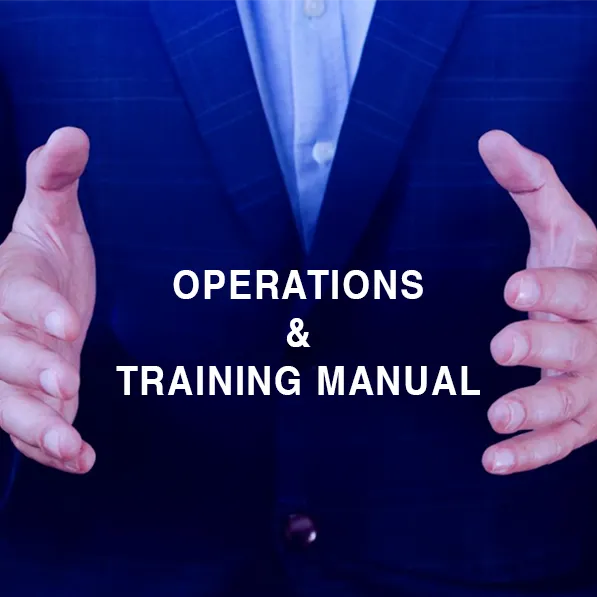
OPERATIONS & TRAINING MANUAL
If Your Business Only Works When You’re There, It’s Not a Business — It’s a Dependency. The Operations & Training Manual Is the Key to Freedom.
There is a moment in every business where the owner realizes that the company’s success depends on them being involved in everything:
They answer the questions.
They solve the problems.
They fix mistakes.
They clarify instructions.
They train new people manually, repeatedly.
And although this feels like dedication, it is actually captivity.
A business where the owner is the system can never scale.
It cannot run without constant supervision.
It cannot grow beyond the owner’s personal capacity.
And it cannot ever be sold — because what’s being sold depends on a single human.
The Operations & Training Manual is not a document.
It is the process of taking your business out of your head and turning it into repeatable steps that any capable person can follow.
This is the beginning of freedom.
Not by stepping away —
but by building something that can stand without you.
What the Manual Actually Is
It is a living library of:
Standard Operating Procedures (SOPs)
Checklists
Scripts & templates
Communication expectations
Best practices
Quality control steps
Service delivery workflows
Not complicated.
Not theoretical.
Just “how we do things here.”
Your manual answers:
“How do we do this consistently, successfully, and repeatably — every time?”
Consistency is professionalism.
Repeatability is scalability.
Documentation is freedom.
Why Small Businesses Resist This
Because the owner thinks:
“I don’t have time to document all this.”
“It’s faster to just do it myself.”
“My business is too custom / creative / unique to document.”
But here is the truth:
You don’t document because you have no time.
You have no time because you don’t document.
This is the cycle that keeps owners trapped.
And yes, your business is unique —
but the process of delivering excellence is not.
Documenting your process does not remove creativity.
It protects your energy so creativity can come from strength, not exhaustion.
How to Build This Without Overwhelm
You do not write a giant manual in one sitting.
You do this:
Next time you complete a task you want to delegate — record yourself doing it.
Convert the recording into step-by-step instructions.
Have someone else follow the instructions.
Refine it until it works without your involvement.
This is how systems are created:
One documented process at a time.
Steadily. Consistently. Permanently.
Your business grows when your knowledge becomes transferable.
Your Coaching Assignment
Choose one recurring task this week.
Document it.
Hand it off.
Review it.
Improve it.
This is how you begin the journey from operator…
to architect.
